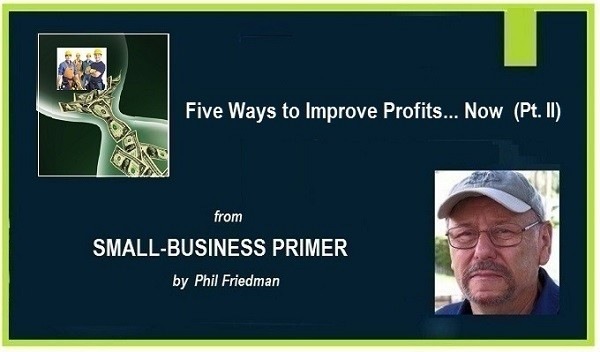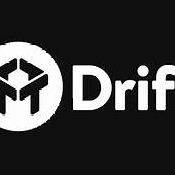Interest-Based Negotiation: Taking the High Road

HOW MY DOG HELPED ME LEARN...
If you ask most businessmen and lawyers about the key element(s) of successful negotiation, you will be told it is a matter of "leverage" and/or "power". That is to say, success in a negotiation reduces to the question of which party has the stronger hand in respect of these. And by far, the prevalent view is that the "winner" of any set of negotiations will be the party who is in the strongest position to walk away from a deal, or litigate a dispute, should an impasse -- real or feigned -- be reached.
But leverage- and power-based negotiating are not the only ways to go about reaching agreements...

In interest-based negotiations, the parties seek to delineate and understand their respective actual or true interests in achieving an agreement or negotiated resolution to a dispute; and they work to structure an agreement that serves, to as great a degree as possible and practical, the respective interests of all parties.
In a bit, I'll give you an example of how I've used this form of negotiation to help clients in difficult marine-sector business situations. However, first let me give you a very simple example of how my dog helped me understand, in a very real sense, how interest-based negotiating could be employed to achieve a successful outcome in mundane, everyday circumstances.
When negotiations go to the dogs...
Several years ago, my wife and two daughters decided that our family dog's bed had become too grungy and ratty to remain in our den, where we had always kept it. Not being content to replace it with another $19.99 K-Mart special, they went to a boutique-style pet supplies store and purchased a truly beautiful $225 dog bed in a fabric and construction better than most of the clothes I wear.
Unfortunately, when they brought it home, our dog looked at it, sniffed it, then turned his nose up, and immediately went to his old bed and laid down, refusing ever to go near the new bed again. Okay, we all figured, the store has a 30 day return policy, so we'll just take the new bed back. Unfortunately, a few days later, our area was hit by a hurricane; and in the aftermath and recovery, the new, never-used, outlandishly expensive dog bed was put on a shelf in a closet, in its original store bag, original tags and all. And it was not until about a year later that we noticed we still had it.
"They're not going to take it back now, a year later," my wife told me.
"Not to worry," I replied, "I have an idea."
After all, I had just completed a course in interest-based negotiating; and was pretty confident -- some might say full of myself -- about being able to work out a deal. I reasoned that the store's 30 day limit on returns was based on their need to replace stock which had been sold, and that once they had done that, they didn't want to end up with an inventory investment in both an item which they thought they had sold, and the replacement they had already ordered and stocked. So, after conferring with my dog about whether he would ever deign to use the new chi-chi dog bed, this is what I did.
Making a bed I could lie in ― comfortably...
I went to the store's owner and offered him a deal. If he would take the pristine, absolutely unused dog bed back, he could:
1) First, deduct the amount of profit he had made on the original sale, then
2) Refund to me only the remainder, but even then
3) Only in the form of a store credit to be used on future purchases.
This, I pointed out, served his interests in a number of ways.
1) It enabled him to retain the profit on the original sale to my wife and daughters.
2) It also put an inventory item back on his shelves, to be sold again at a profit, without tying up any of his working capital.
3) It also meant he could make the refund without laying out any cash.
4) It also meant that I would purchase more at his store, adding again to his profit.
5) And finally, he would make me a customer who would most certainly recommend his store to other dog owners.
On my side, the deal enabled me to change a $225 white elephant into a credit for about $140 that my family could use to purchase dog food, as well as toys and other pet junk that we would in all likelihood, at some point, buy anyway.
It was, I said to the store owner, a win-win deal, and to both our best interests. After his initial skepticism, as he thought about it, he agreed. And voila, I had completed my first post-course interest-based negotiation.
I hadn't threatened to disparage his store on Yelp! Nor had I threatened to discourage my friends and acquaintances from shopping at his store. Instead, I had structured an proposal that addressed both his interests and mine. Perhaps best of all, I could give my wife and daughters a Bronx cheer for their clearly expressed lack of faith in my negotiating skills.
Taking It to the (marine) business world…

Granted, my work in the infamous dog bed negotiation was not exactly world shattering, however amusing the incident was. But since that initiation into real-world interest-based negotiating, I've had occasion to apply the same principles numerous times to good effect in the large-yacht construction and refit sector I work in.
For example, I was once approached by a yacht owner who was in the midst of a dispute with a boatyard over an expensive paint job. The yacht owner claimed the yard had botched the job. He said he had to date paid them 75% of the contracted total fixed price for the job, but that the results were sub-standard; and he was extremely disappointed and dissatisfied.
According to yacht owner, the shipyard had offered to redo the final spray coat, but they wanted him first to pay the balance of the bill. The owner told me that he was afraid to pay the balance, because they had already redone the final spray coat once before; and he was not confident they had the skills necessary to do any better on what would be a third attempt. In which case, he would have paid them the full amount for the job, and be SOL.
He told me he had suggested to the yard that he just take his yacht as is, and forget the final payment. But the yard had refused, alleging that he was complaining about the job, simply to develop leverage to renege on paying the balance of the bill. The situation was at an impasse, and the yacht owner was asking for my advice.
I first told him that he could probably regain possession of his yacht over the yard's resistance under its mechanic's lien, but that it would involve placing a bond with a Court of appropriate jurisdiction for the entire balance claimed by the yard to be due and payable ― pending litigation eventually to determine whether the yard had or had not done a reasonable and proper job.
I also pointed out that, even if he could regain possession of his yacht under such circumstances, he would then still have to pay someone else to redo the final spray coat(s) that he currently didn't like. All of which would result in tying up at least double the cash needed for payment of the current balance alleged due on the job.
Worse, if he failed to prevail in litigation to prove non-performance on the part of the boatyard that was currently holding his yacht, he would end up paying double for the remainder of the job,plus in all likelihood his and their lawyers' fees. It was, to say the least, a real mess. It was, however, also a perfect opportunity for interest-based negotiation and mediation. So, I agreed to talk to the boatyard, to see if I could get them to agree to allow me to mediate.
Reeling in an interest-based alternative resolution...

In the interim, I determined that the boatyard's fixed price quote for the job was about 30% lower than the lowest competing pre-job bid. Which meant that, had the owner originally gone with one of the other quotations he had received, he would now be paying not only the approximately $35K he still owed on the current job, but at least another $40K on top of that ― for a total of $75K ― enough to pay for taking the job from it's current as-is state to a fully acceptable final finish.
When I talked to the owner of the boatyard, I pointed out that even if the yacht owner paid them the $35K balance due, they would likely use up all of that payment re-sanding the yacht and re-spraying another final coat. So irrespective of what had gone before, there was no profit left to be had in the job, only aggravation and grief.
I suggested that they, therefore, release the yacht to her owner as-is, with a mutual release of all claims, provided only that the yacht owner had the job completed at another yard. I suggested this last provision because I knew that no boatyard wants to release a partially finished project to float around as an advertisement of a job badly done.
Once the paint job was completed by another yard, the first yard could absolve itself of further responsibility, not only legally, but in terms of customer and public relations, which was clearly in the yard's best interests. And finally, they would be in no worse shape if they let the yacht go as-is, and quit their claim for the balance due, than they would be if they received the final payment and performed the re-preparation and sprayed an additional final coat or two, as needed.
Then, I returned to the yacht's owner and explained the circumstances and the dollar facts to him. Had he gone with the next lowest cost bid to the one he actually took, he would now owe $75K. The boatyard which had given him that second lowest bid was prepared to re-prep and re-spray the final top coats for that amount. Consequently, it wasn't going to cost him any more than it would have, had he not tried to cut pricing unreasonably, and not gone with the second lowest bid in the first place.Back to the yacht owner...
I explained further that, since he was confident that boatyard with the second-lowest bid could do the job to his satisfaction, this was a way to get his boat out of hock, and get the job completed, at no additional cost beyond what he would have paid in the first place ― all while avoiding the expense, aggravation, and risk involved in a replevin action and eventual litigation over whether the first boatyard had done a reasonable job according to accepted industry standards.
In other words, given the existing circumstances, it would be a win-win situation, and would serve the best interests of all parties to the dispute...
The yacht owner and the boatyard agreed, and all eventually went as agreed. As for me, I was confirmed in my belief that interest-based negotiation is a strong alternative to the more common leverage- and power-based approaches. Indeed, I was so pleased with the outcome, I even gave my dog an extra biscuit each day for a month. ― Phil Friedman
Postscript: Some people will dismiss these two examples as being too simple minded. They will argue that interest-based negotiation is too difficult and cumbersome to apply in most real world disputes, especially "complex" business disputes. However, I've chosen these two examples precisely because they are relatively simple and so clearly illustrate the principles involved. Moreover, I submit that actually it is leverage- and power-based negotiating approaches which oversimplify, much as one does when using a baseball bat to swat a fly. As approaches to negotiation, they're relatively easy, quick... and pretty mindless, since they consistently overlook the potential collateral and consequential damages to reputation, and future customer and business relations. ― PLF
Author's Notes: If you found this article of value, you may want to take a look at some of my other writing about small business operations and management:
"What I Learned About Entrepreneurs From the Founder of Monster.com"
"Tips for Successful Consulting"
"Maximizing Throughput on Fixed Assets and Overheads"
If you'd like to receive notifications of my writings on a regular basis, click the [FOLLOW] button on my beBee profile. As a writer-friend of mine says, you can always change your mind later.
Feel free to "like" and "share" this post and my other LinkedIn articles — whether on LinkedIn, Twitter, Facebook, or Google+. I ask only that you credit me properly as the author, and include a live link to the original work.
If you are interested in yachts, are allied with the yacht building industry, or operating a small business in another sector, you should consider joining my beBee Hive,
THE PORT ROYAL GROUP for Yacht Builders, Buyers and Owners,
where you will find experienced industry professionals discussing a wide range of topics. The ongoing conversation is always interesting, informative, and 100% industry insider.
About me, Phil Friedman: With 30 some years background in the marine industry, I've worn numerous hats — as a yacht designer, boat builder, marine operations and business manager, marine industry consultant, marine marketing and communications specialist, yachting magazine writer and editor, yacht surveyor, and marine industry educator. I am also trained and experienced in interest-based negotiation and mediation. In a previous life, I taught logic and philosophy at university.

To schedule an appointment for a free 1/2-hour consult email: info@learn2engage.org.
Text Copyright © 2016 by Phil Friedman — All Rights Reserved
Images Credits: Phil Friedman, FreeDigitalPhotos.net, and Google Images

Articles from Phil Friedman
View blog
TODAY'S POPULAR DISCUSSIONS ABOUT ARTIFICIAL INTELLIGENCE AND Ai ARE RIFE WITH SCIENCE FANTASY AND L ...

MAKE NO MISTAKE: TRADING IN CRYPTO-CURRENCIES IS A ZERO-SUM GAME... · The number of cryptocurrencies ...

IMPROVE CAPTURE OF BILLABLE HOURS TO BOOST GROSS PROFIT WITHOUT ADDED OVERHEADS... · Preface: · This ...
Related professionals
You may be interested in these jobs
-

Analog circuit design expert
Found in: Lensa US 4 C2 - 15 hours ago
BITMAIN Los Angeles, United StatesJob responsibilities1. Definition of analog and mixed-signal circuit modules, and formulation of technical specifications and detailed design plans;2. Work related to analog and mixed-signal circuit design, simulation verification and subsequent testing;3. Guide layout planning a ...
-

Licensed Practical Nurse
Found in: CareerWallet US C2 - 3 weeks ago
Drift Services Brooklyn, United States Full timeStarting Pay Rate: $27.34 / hour · At DRIFT, we work with healthcare companies across the United States to help recruit for frontline staff positions. By applying with us, you'll work with one of our Recruitment Pros to help you land your next dream role. Please note: we recruit ...
-

Part-Time Family Medicine Job in NC Offers No Call, Outpatient-Only
Found in: Lensa US P 2 C2 - 3 days ago
The Curare Group Fayetteville, United States Part timeA beautiful Fayetteville, North Carolina suburb is seeking a Board Certified Family Medicine physician to join their team. This position comes with all the standard benefits and great pay, as well as the chance to work with a dynamic, trustworthy, and friendly team. This is an ex ...

Comments
Phil Friedman
5 years ago #9
Yes, Claire L Cardwell, with interest-based negotiation both parties do go away feeling they have won (something) because if the method is understood and successfully implemented, they HAVE both won. The reason I believe interest-based negotiation (and mediation) is, in reality, more successful than leverage- or power-based approaches, is that with interest-based solutions, the chance for the parties to do business again is much greater than when one party wins everything at the expense of the other party who loses everything. Cheers!
Phil Friedman
6 years ago #8
Phil Friedman
8 years ago #7
Yes, Paul Croubalian, the major advantage of an interest-based resolution is that it preserves the chance to do business again in the future. Unlike a leverage or power based resolution that leaves a bad taste in the "loser's" mouth. Thanks for reading and commenting. Cheers!
Phil Friedman
8 years ago #6
Thanks, Ken Boddie, for reading and commenting. I am pleased that you see the two examples in their true light, which is as clear, straightforward instances. I think if you make the examples too complicated, the basic principles get submerged in the details, and can be missed. And I think in that you and I agree. Cheers!
Phil Friedman
8 years ago #5
Thank you Louise Smith, for the kind words. As to using my dog pic as the title image, I actually did that in an earlier version of this article. But it seemed like a click-bait gambit to me, and anyway the piece consitently received less notice than when I chose a lead image that was more business-like. Thank you for the suggestion, though. And thank you for reading and commenting/
Louise Smith
8 years ago #4
Louise Smith
8 years ago #3
Louise Smith
8 years ago #2
Ken Boddie
8 years ago #1